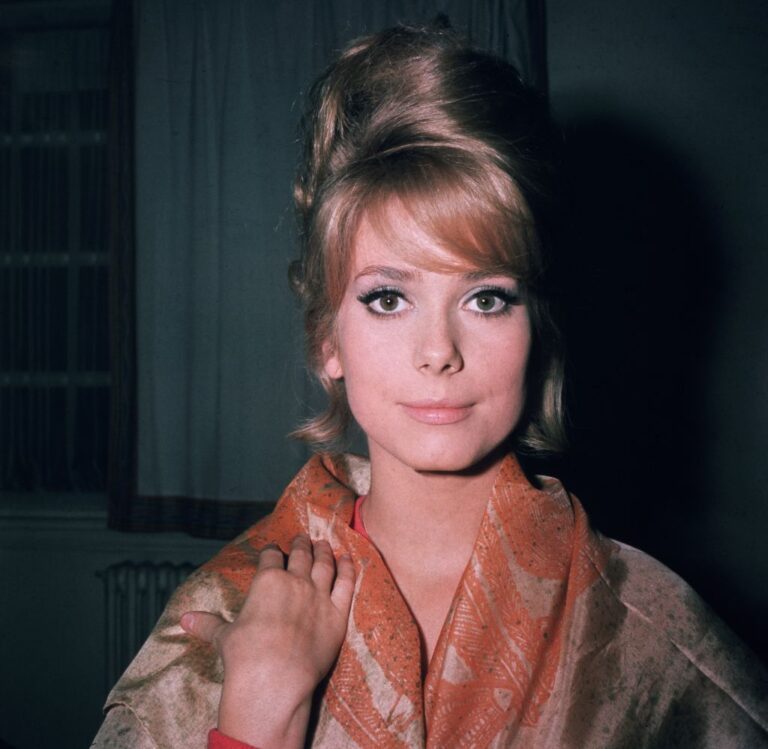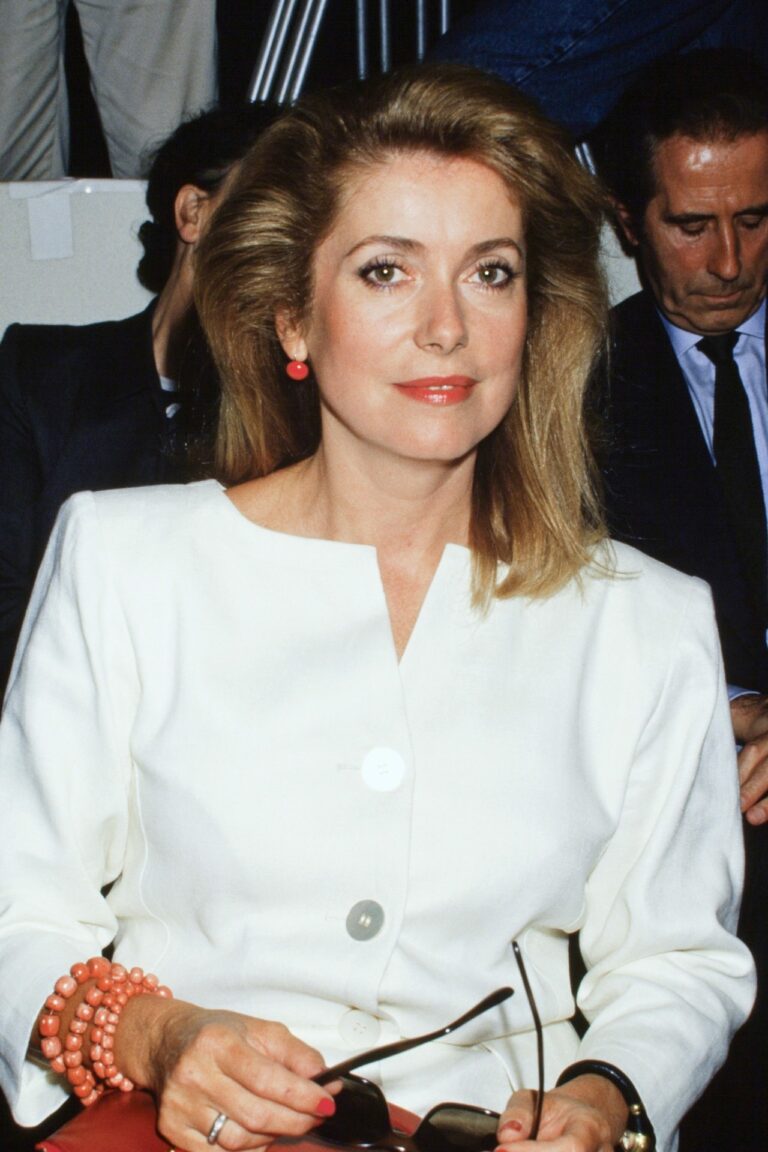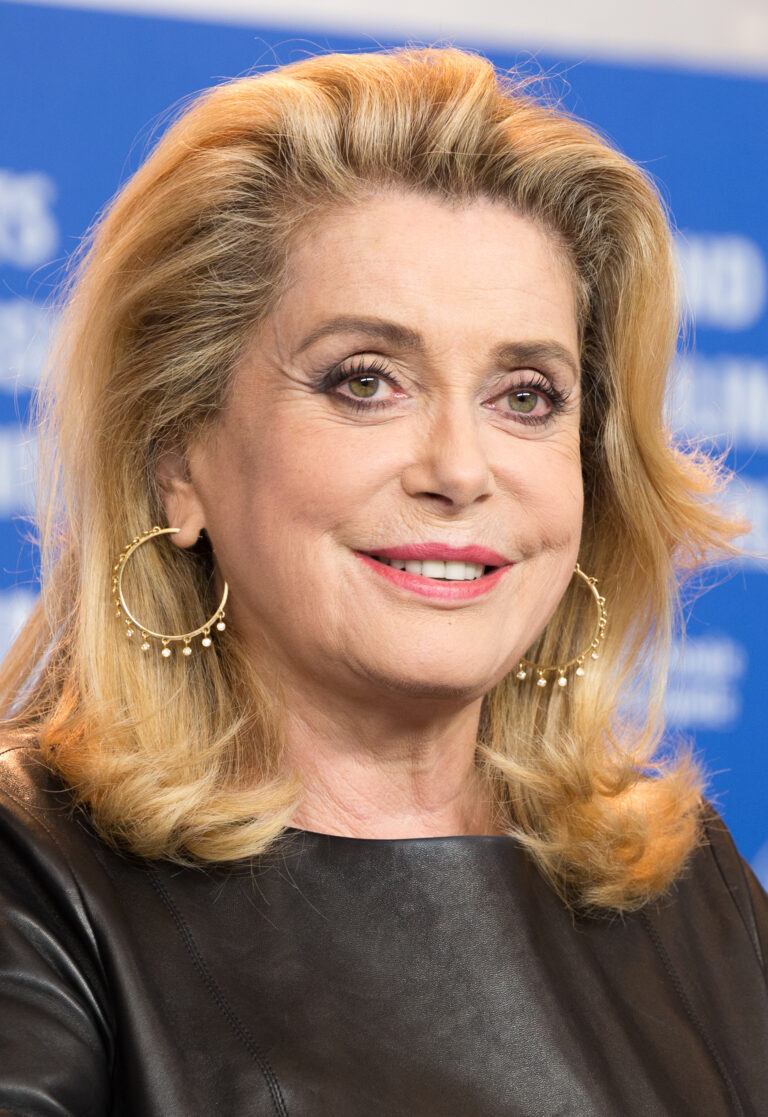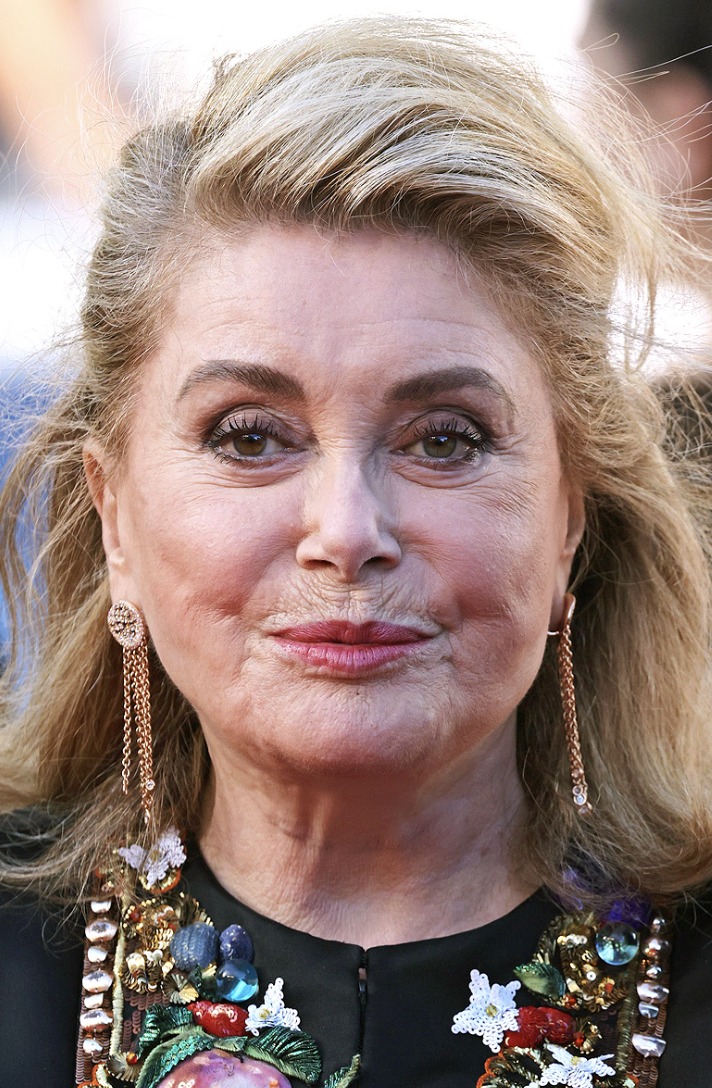A Timeless Icon of French Cinema continues to radiate elegance and beauty
Catherine Deneuve, often regarded as one of the most iconic actresses of French cinema, has had a career spanning over six decades. Her grace, enigmatic beauty, and captivating performances have earned her a place not only as a film star but as a cultural symbol of French sophistication and artistry. From her early beginnings to her current role as a legend in cinema, Deneuve’s life is a story of talent, perseverance, and elegance.

Deneuve made her screen debut at the age of 13 in *Les Collégiennes* (1957), a relatively small role. However, it wasn’t until the early 1960s that she began to gain serious attention. It was Jacques Demy’s *The Umbrellas of Cherbourg* (1964) that catapulted her into stardom. Deneuve played a young woman caught in a tragic romance in this vibrant, entirely sung musical. The film’s success both in France and internationally made Deneuve a recognizable face, marking the beginning of a brilliant career.
Rise to Stardom and Cinematic Success
Following her breakout role, Deneuve continued to work with some of the most influential directors of her time, cementing her status as a star. In 1965, she appeared in Roman Polanski’s psychological horror film *Repulsion*, where her portrayal of a mentally disturbed woman was widely acclaimed. Her ability to delve into complex, often mysterious characters became a defining trait of her acting style.
In 1967, she collaborated again with Jacques Demy in *The Young Girls of Rochefort*, a whimsical and colorful musical. The same year, she took on a darker role in Luis Buñuel’s *Belle de Jour*, one of her most famous performances. Deneuve played Séverine, a bourgeois housewife who secretly works as a prostitute. Her portrayal of this complex character, restrained yet emotionally deep, was groundbreaking and cemented her as an actress who could take on daring, controversial roles.

Throughout the 1970s and 1980s, Deneuve continued to work with high-profile directors. Her performance in François Truffaut’s *The Last Metro* (1980) earned her a César Award (the French equivalent of an Academy Award) for Best Actress. In the film, she plays an actress who, during the Nazi occupation of France, must save her husband, a Jewish theater director, while keeping their theater running. This role demonstrated Deneuve’s maturity as an actress, portraying vulnerability, strength, and emotional complexity with ease.
Deneuve also ventured into Hollywood during her career, working alongside iconic figures such as Jack Lemmon and Burt Reynolds in *Hustle* (1975) and David Bowie and Susan Sarandon in *The Hunger* (1983). Her versatility in both French and international films showcased her range and ensured her place as a global cinematic figure.
Personal Life and Relationships
Catherine Deneuve’s personal life has often been as intriguing as her on-screen roles. She has been linked to several high-profile relationships, though she has always maintained a sense of privacy. She had a son, Christian Vadim, with French director Roger Vadim, and a daughter, Chiara Mastroianni, with Italian actor Marcello Mastroianni. Both of her children have pursued careers in film, carrying on the family tradition.
Deneuve’s relationship with her older sister, Françoise Dorléac, was a significant part of her life. The sisters often appeared together, and their bond was well-known in the film industry. Tragically, Françoise died in a car accident in 1967, a loss that deeply affected Deneuve.

A Cultural Icon and Advocacy
Beyond her work in cinema, Catherine Deneuve has become a cultural symbol of French elegance. Her partnership with Yves Saint Laurent, who designed many of her costumes in films, such as *Belle de Jour*, and her frequent appearances at fashion events solidified her as a style icon. Saint Laurent once called her his “ideal woman,” and their collaboration became a hallmark of French haute couture.
In addition to her film and fashion career, Deneuve has been involved in political and humanitarian causes. She has been a vocal advocate for women’s rights, though she made headlines in 2018 for signing an open letter that argued against the excesses of the #MeToo movement. Her stance sparked debate, but Deneuve stood by her belief in defending freedom of expression and the importance of nuance in such discussions.
Deneuve has also been an advocate for environmental causes, notably supporting Action Against Hunger and working to protect animal rights.
Later Career and Life Today
As she aged, Catherine Deneuve continued to take on roles that defied Hollywood’s conventional standards for actresses over 50. In the 1990s and 2000s, she appeared in a number of critically acclaimed films, such as *Indochine* (1992), where she played a French plantation owner in Vietnam, a role that won her the César Award for Best Actress and an Academy Award nomination.

Deneuve has embraced her roles as an elder stateswoman of cinema, often portraying characters with depth, wisdom, and complexity. In 2014, she starred in *The Brand New Testament*, a quirky and bold comedy that received international acclaim, showcasing her continued ability to surprise audiences with unexpected performances.
More recently, Deneuve appeared in *The Truth* (2019), directed by Hirokazu Kore-eda, alongside Juliette Binoche. The film premiered at the Venice Film Festival and was praised for the way it explored the relationship between a mother and daughter, with Deneuve delivering another subtle, nuanced performance.
Despite a minor stroke in 2019, Deneuve has shown no signs of slowing down. She remains active in the film industry, still taking on challenging roles and captivating audiences with her performances.
Legacy
Catherine Deneuve’s legacy is firmly cemented as one of the greats of international cinema. Her career has spanned generations, and her ability to adapt, evolve, and challenge societal norms has made her an enduring figure. Beyond her beauty, she is remembered for her bold choices, her elegance, and her advocacy for important causes. Today, Deneuve continues to inspire both her peers and younger generations of filmmakers and actresses.
Whether playing complex heroines, mysterious seductresses, or strong, determined women, Catherine Deneuve remains a cinematic icon whose career is as remarkable as it is inspiring. As she continues to work in film, her legacy will undoubtedly continue to grow, reminding the world of her extraordinary contribution to the art of cinema.




